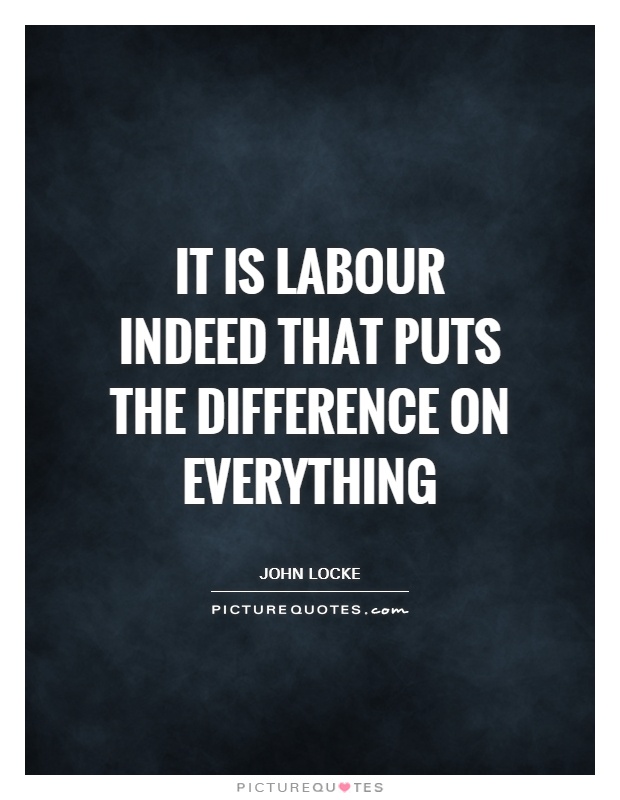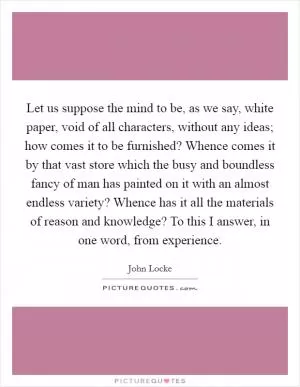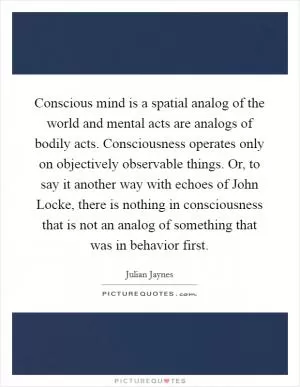It is labour indeed that puts the difference on everything

It is labour indeed that puts the difference on everything
John Locke, a prominent philosopher of the Enlightenment era, believed in the importance of labor as a fundamental aspect of human existence. In his seminal work, "Two Treatises of Government," Locke famously stated, "It is labour indeed that puts the difference on everything." This statement encapsulates Locke's belief that labor is not only essential for individual prosperity and self-improvement but also plays a crucial role in shaping society and the distribution of wealth.Locke's emphasis on labor as a defining factor in human life can be traced back to his theory of property rights. According to Locke, individuals have a natural right to acquire and possess property through their labor. He argued that when individuals mix their labor with the resources of the earth, they create a legitimate claim to ownership. This concept, known as the labor theory of property, forms the basis of Locke's theory of property rights and has had a profound influence on subsequent political and economic thought.
Furthermore, Locke believed that labor was not only a means of acquiring property but also a source of personal fulfillment and self-worth. He viewed labor as a form of self-expression and a way for individuals to realize their potential and contribute to the common good. In Locke's view, labor was not just a means to an end but an end in itself, a source of dignity and pride.
Moreover, Locke's emphasis on labor as a transformative force in society can be seen in his ideas about the role of government. Locke believed that the primary function of government was to protect the natural rights of individuals, including their right to property. He argued that a just government should ensure that individuals are able to enjoy the fruits of their labor and that the benefits of economic activity are distributed fairly.












 Friendship Quotes
Friendship Quotes Love Quotes
Love Quotes Life Quotes
Life Quotes Funny Quotes
Funny Quotes Motivational Quotes
Motivational Quotes Inspirational Quotes
Inspirational Quotes